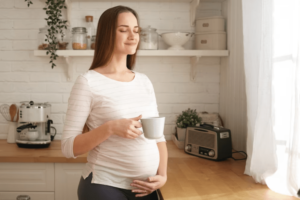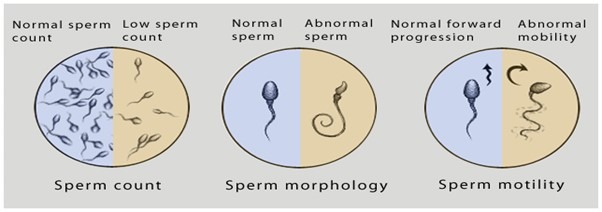For couples struggling with infertility, assisted reproductive technologies (ART) such as intrauterine insemination (IUI) often become a viable option to increase the chances of conception and fulfil their dreams of having a child.
But what happens when IUI doesn’t yield the desired results? Is all hope lost? Absolutely not!
While a failed IUI can be disheartening, it is crucial to remember that there are still reasons to be optimistic, as the chances of a natural pregnancy after a failed IUI exist.
In this blog, we will delve deeper into the subject of natural conception after a failed IUI cycle. We will explore the factors affecting the chances of a natural pregnancy after a failed IUI and ways to improve the possibilities of conceiving naturally after a failed IUI, with insights from Dr. Nisarg Patel, one of the highly experienced IVF specialists in India.

At Nisha IVF, one of the best IVF centre in Ahmedabad, we understand the emotional and physical rollercoaster that couples go through during their fertility journey.
Our mission is to empower you with the knowledge and support necessary to make informed decisions and take steps towards achieving your dream of parenthood.
Our founder, Dr. Nisarg Patel, a proficient IVF doctor in Ahmedabad, has vast expertise in fertility treatments. He is adept at identifying the factors causing IUI failure. After confirming the diagnosis, he may recommend effective treatment options to improve the chances of conception after a failed IUI.
Additionally, Dr. Nisarg may explore the natural way to confirm pregnancy and provide tips on enhancing fertility for those who wish to get fast pregnant naturally and swiftly.
So, first, let’s know,
Is There Any Chance of Natural Pregnancy After Failed IUI?
- Yes, natural pregnancy is still possible after a failed IUI. While the success rate of IUI varies, and it may not always result in pregnancy, conception can still occur naturally in subsequent menstrual cycles.

- Factors such as age, overall health, reproductive health issues, and the underlying causes of infertility can influence the chances of natural pregnancy. It is essential to consult with a fertility specialist to evaluate your situation and explore the possibilities for natural conception.
- Additionally, maintaining a healthy lifestyle, optimizing fertility through diet and exercise, and tracking ovulation can increase the chances of natural pregnancy.
- While the journey may have challenges, staying hopeful and informed about the potential for natural conception after a failed IUI is important.
How Soon Can One Expect a Natural Pregnancy After a Failed IUI?
 The timing of a natural pregnancy after a failed IUI can vary. It is possible to conceive in subsequent menstrual cycles after a failed IUI. But the specific timeframe differs for each individual.
The timing of a natural pregnancy after a failed IUI can vary. It is possible to conceive in subsequent menstrual cycles after a failed IUI. But the specific timeframe differs for each individual.- Factors such as age, overall health, reproductive health issues, and the underlying causes of infertility can influence the chances of natural pregnancy.
- Consulting with a fertility expert can provide insights into the specific circumstances and help determine the best course of action.
- It is important to stay hopeful and patient while actively working towards optimizing fertility for a potential natural pregnancy.
Now, let’s discuss,
What are the Reasons for Failed IUI?
There are several reasons for a failed IUI, including:
1. Poor egg quality:
The quality of the eggs released during ovulation can affect the success of fertilization and implantation.
2. Sperm issues:

Low sperm count, poor motility, or abnormal morphology can reduce the chances of successful fertilization.
3. Timing of the procedure:
IUI must be performed optimally around ovulation during the woman’s menstrual cycle. Timing discrepancies can result in missed opportunities for conception.
4. Reproductive health issues:

Conditions such as blocked fallopian tubes, uterine abnormalities, or endometriosis can hinder fertilization and implantation.
5. Unexplained infertility:
In some cases, the reason for a failed IUI is not identified. Working closely with a fertility specialist is crucial to determine the underlying reasons for a failed IUI. They can explore appropriate next steps in your fertility journey.
How To Prepare Yourself After Failed IUI?
After a failed IUI, taking care of physical and emotional well-being is essential. Here are some steps to consider in preparing for the next steps:
1. Give yourself time to heal:
Allow yourself to process the emotions and disappointment that may arise from a failed IUI.
2. Discuss the results with your fertility specialist:
Schedule a follow-up appointment with your fertility specialist to discuss the outcome of the failed IUI. They can provide insights into the possible reasons for the failure and recommend appropriate treatment plans.
3. Focus on overall health and well-being:
Prioritize self-care by adopting a healthy lifestyle. This includes maintaining a balanced diet, exercising regularly, managing stress, and resting sufficiently. Taking care of your physical health can positively impact your fertility journey.
4. Seek emotional support:
Consider joining support groups or seeking counselling to connect with others who are going through similar experiences. Sharing your thoughts and emotions with trusted individuals can provide invaluable support during this challenging time.
Now, let’s look at the,
Factors Influencing Natural Pregnancy After Failed IUI
Several factors can influence the chances of a natural pregnancy after a failed IUI. These factors include:
1. Age:
Age plays a significant role in fertility. As individuals age, their fertility declines and the chances of conceiving naturally decrease. Women in their late 30s and 40s may face more challenges in achieving a natural pregnancy after a failed IUI.
2. Reproductive health:
The overall reproductive health of both partners can impact the chances of natural pregnancy. Issues such as hormonal imbalances, blocked fallopian tubes, endometriosis, or uterine abnormalities can affect fertility and the likelihood of conception.
3. Sperm quality:
Poor sperm count, low motility, or abnormal morphology can reduce the chances of natural pregnancy.
4. Underlying health conditions:
Certain medical conditions such as polycystic ovary syndrome (PCOS), thyroid disorders, diabetes, or obesity can affect fertility and the chances of conceiving naturally.
5. Lifestyle factors:
Unhealthy lifestyle habits, such as smoking, excessive alcohol consumption, poor diet, lack of exercise, and high-stress levels, can negatively impact fertility.
What can Improve the Chances of Natural Pregnancy after a Failed IUI?
To improve the chances of a natural pregnancy after a failed IUI, one can follow the below steps:
1. Maintain a healthy lifestyle:
Adopting a healthy lifestyle can positively impact fertility. This includes eating a balanced diet, exercising regularly, getting enough sleep, and managing stress. Maintaining a healthy weight is also essential, as overweight and underweight conditions can affect fertility.
2. Track ovulation:
Understanding the timing of ovulation is crucial for natural conception. Tracking methods such as basal body temperature charting, monitoring cervical mucus changes, or using ovulation predictor kits can help determine the most fertile days in the menstrual cycle.
3. Optimize intercourse timing:
Regular intercourse, especially during the fertile window around ovulation, increases the chances of natural pregnancy. Aim to have intercourse every 2 to 3 days during this period to maximize the chances of conception.
4. Address underlying health conditions:
If there are underlying health issues such as PCOS, thyroid disorders, or hormonal imbalances, consult a healthcare provider to manage and treat these conditions. This can help improve fertility and increase the chances of natural pregnancy.
5. Monitor menstrual cycles:
Pay attention to changes in menstrual cycles after a failed IUI. The first period after failed IUI can provide insights into fertility status and potential opportunities for natural conception.
Takeaway
A failed IUI does not mean the end of the road to achieve a natural pregnancy. While the success rate of IUI can vary, there are still chances of conceiving naturally.
It is essential to remain hopeful, stay informed, and seek support during this journey towards parenthood. Remember, every fertility journey is unique, and with resilience and perseverance, one can still realize the dream of a natural pregnancy.
Frequently Asked Questions
Q.1 When to expect a period after a failed IUI?
A: Typically, a period may arrive within 1 to 2 weeks after a failed IUI. However, the timing can vary from person to person.
Q.2 Is the period heavier after a failed IUI?
A: The procedure does not directly influence the heaviness of the period after a failed IUI. It usually follows the usual pattern for each individual.
Q.3 Are the chances of natural pregnancy lower after a failed IUI?
A: A failed IUI may indicate specific fertility challenges. However, it does not mean the chances of natural pregnancy are significantly lower.
Various factors contribute to the possibilities of conception. Hence, it is advisable to consult a healthcare provider for personalized guidance.
Q.4 Does the number of failed IUI attempts affect the chances of natural pregnancy?
A: The number of failed IUI attempts does not directly impact the chances of natural pregnancy. Each cycle is independent, and the success of natural conception depends on various factors, including overall fertility health.
Q.5 Are there any natural ways to confirm pregnancy after a failed IUI?
A: Home pregnancy tests can help confirm pregnancy. However, for more accurate results, you should consult your doctor for further testing.


